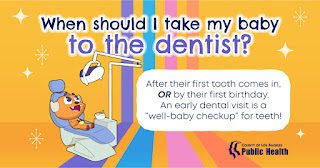Are you having surgery soon?
Make a dental appointment!
If you have concerns about your oral health, such as tooth pain or bleeding gums, it's important to have a dental visit prior to your surgical procedure. Dental disease may not hurt and can go undetected, so even if you don't have concerns, having a dental visit before your surgery is a good idea. This way you can be confident your mouth is healthy while you focus on your recovery.
It's also important to ask your surgeon if you will require any medication, such as antibiotics, prior to dental visits after you have had your surgery. Procedures such as total joint replacements and some heart procedures, as well as other procedures, will require you to remain on medications for a period of time. You may even need to remain on medications post-surgery for a prolonged period or for life.
If you are prescribed blood thinners, you will be required to obtain medical clearance from your doctor or specialist prior to having any dental treatment. You may need to stop or remain on your medication, or take premedication, depending on the type of dental treatment you need. Tell your dental professional what medications you are taking.
Always update your dental hygienist and dentist with any planned procedures, any medical changes, medication changes, allergies, or new medical conditions.
The mouth is the gateway to the body! Anything that affects your body can affect your oral health. Your dentist and dental professionals are partners in keeping you healthy and happy.
Good luck with your surgery!
This blog and its posts are not intended to treat, diagnose, cure, or advise about any dental or medical condition. Please see your dentist or doctor for any treatment or information you need regarding your health.




